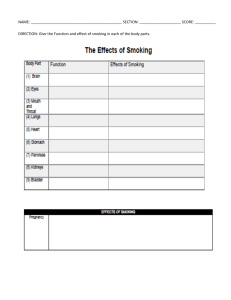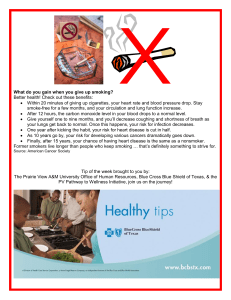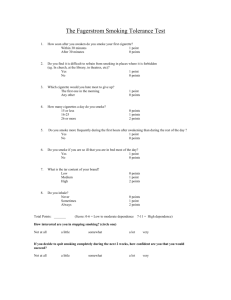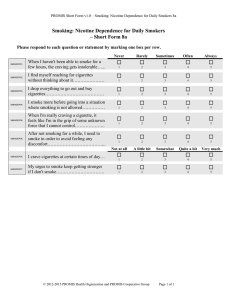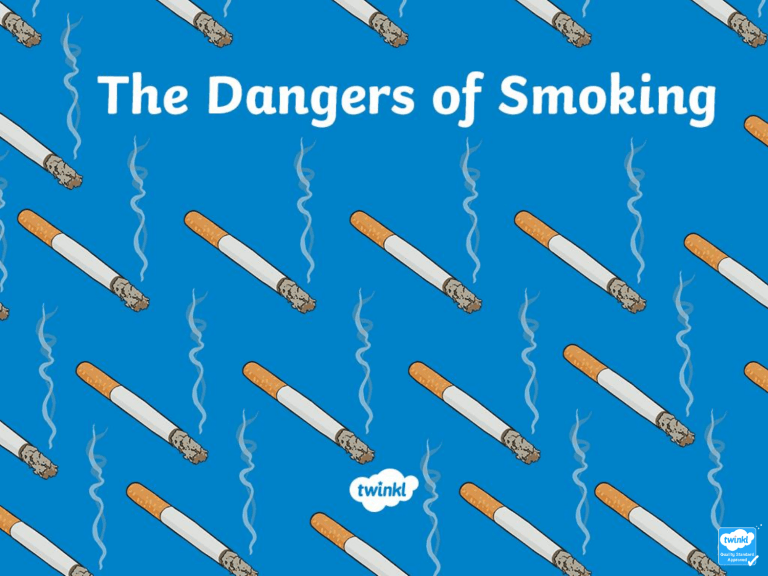
Smoking – The Facts Smoking is very unhealthy. Cigarettes contain something called nicotine, which is extremely addictive, and that is why people find it very hard to stop once they have started. Smoking is expensive. Cigarettes cost a lot of money! The average smoker spends an astonishing amount per year on cigarettes. Lots of young people start smoking due to peer pressure and because they think it looks cool in front of other people. It doesn’t! It is against the law to buy cigarettes if you are under the age of 18. It is also illegal for adults to smoke in a car when children are inside. Why Is Smoking Dangerous? Can you think of any reasons why smoking is a dangerous habit? Cigarette smoke contains lots of harmful chemicals. They react in the opposite way as medicine does in our bodies. Over time, these poisons can cause damage to the body and cause illnesses. What Is In a Cigarette? There are 4000 chemicals in a cigarette including 43 substances that scientists have linked to causing cancer. These include: • nicotine • tar • carbon monoxide • formaldehyde (usually used to embalm dead bodies) • hydrogen cyanide (a deadly poison) • arsenic (usually used in rat poison) • ammonia (usually used for cleaning windows and toilet bowls) • DDT (a banned insecticide) • polonium (a radioactive element) How Does Smoking Affect the Brain? When someone smokes, the nicotine in the smoke goes to the brain. The cells in our brains then send messages to the rest of our body. These messages can make a person feel more relaxed. However, when this feeling wears off, the person feels like they need to smoke again. This is called a craving and makes smoking addictive. How Does Smoking Affect the Heart and Lungs? Nicotine from smoke reaches the brain and triggers something called adrenaline. Adrenaline makes the heart beat faster. Smoking also releases a poisonous gas called carbon monoxide into the bloodstream. This causes there to be less oxygen than normal flowing through the blood. How Does Smoking Affect the Heart and Lungs? As there is less oxygen in the blood, the heart starts to beat faster to create more oxygen to pump round the body. This means that the heart is working harder than it normally does (sometimes up to 30% harder). The longer a person smokes, the more fatty deposits build up in their blood vessels. This can cause problems like heart attacks. Are There Any Other Effects of Smoking? Cigarettes also contain a substance called tar. Tar is a sticky substance that can leave the ends of a person’s fingers, nails and teeth stained yellow. The poisons and smoke in cigarettes also cause problems for the lungs. These problems can be as simple as a chesty cough or as serious as cancer. Prepared by Princess Era Mae C. Tongcua Grade IV- SSC
